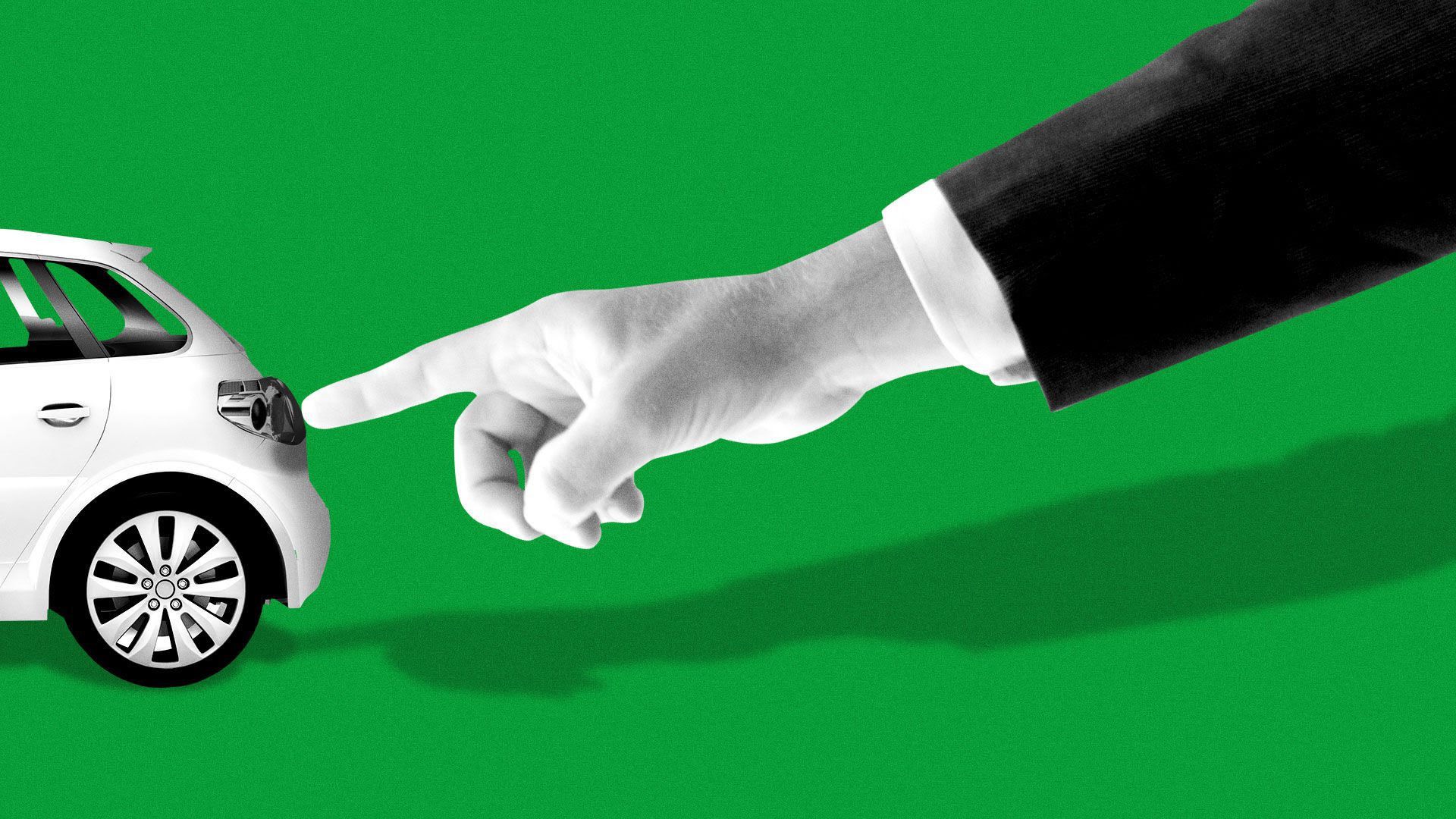California war over gas-free cars
Add Axios as your preferred source to
see more of our stories on Google.

Illustration: Eniola Odetunde/Axios
The fate of California's aggressive moves to wring carbon emissions out of transportation could depend heavily on the election and the shape of the Supreme Court.
Why it matters: California is the country's largest auto market and transportation is the country's largest source of CO2.
- Gov. Gavin Newsom told state regulators Wednesday to craft rules that curb sales of new gasoline-powered passenger vehicles over time, reaching a phaseout in 2035.
- He also ordered tougher rules to greatly boost sales and use of zer0-emissions trucks and buses over the next 25 years.
- The Trump administration came out swinging against the plan, calling it anti-consumer.
The state of play: The plan, if it survives, would join the list of the world's most ambitious moves to curb vehicle emissions by favoring electric and hydrogen-powered models.
- In 2019, fully electric and plug-in hybrid models were well under 10% of California's passenger car sales, per multiple reports.
The intrigue: The plan's fate is bound up in the ongoing battle between California and the White House.
- The Trump administration is seeking to curtail the state's leeway to set its own tailpipe rules (which a number of other states may adopt).
- Its decision last year to revoke California's special Clean Air Act waiver is the subject of continuing litigation.
What we're watching: The election and the fight to replace the late Ruth Bader Ginsburg on the Supreme Court.
- If Trump's upcoming nominee is confirmed, it would give conservative justices a powerful 6-3 majority on the high court.
- Rapidan Energy Group, in a new note, said that split and a second Trump term would greatly imperil Newsom's plan.
- "[T]he 6-3 conservative-led Supreme Court is more likely to uphold the Trump administration’s termination of CA’s waiver, eliminating its ability to enforce its [zero emissions vehicle] program," it said.
Yes, but: Per Rapidan, if Biden wins he will "reinstate the CA waiver and take it off the Supreme Court’s docket before it gets there."
- "With the waiver secure, we would expect other states that have locked their ZEV targets to CA’s to set similar 100%-by-2035 mandates," Rapidan notes.
